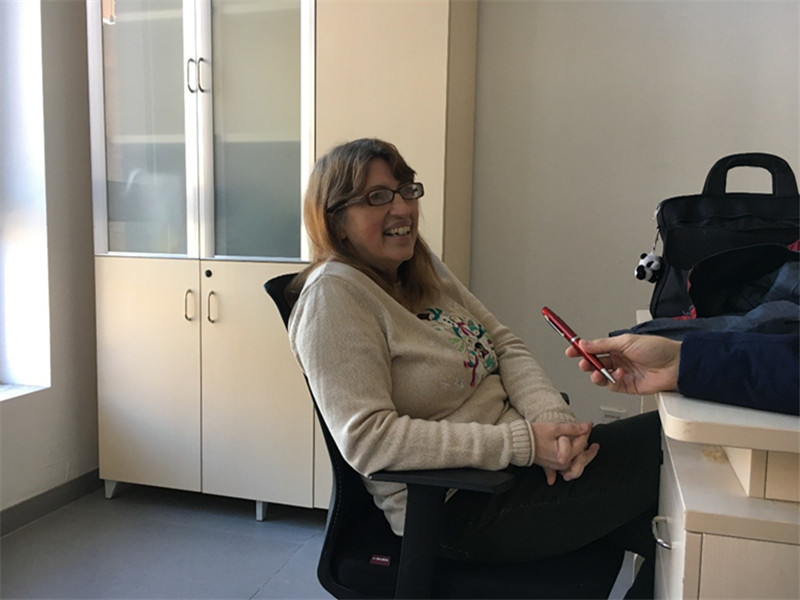As Tianjin University enjoys a greater international reputation, it has established more partnerships with international universities, which gives opportunities to foreign experts to experience life in China. Doris Harrington is one of them.
With curiosity and excitement, Doris came to China one and a half years ago with her husband as English teachers in the School of Foreign Languages and Literature. After retirement, she and her husband were looking for something interesting to do. Then, they found a program through Brigham Young University where they can go to China and teach English. As soon as they arrived, they fell in love with the city. “Even though Tianjin is a big city, it feels small because everyone is friendly and nice, just like a family.” Doris said.

Talking about Tianjin University, Doris expressed her love of the buildings and landscapes of this university. “Beside these, the best part is the wonderful students we have gotten to know and love. They are very kind and polite, and eager to learn.” In the class, Doris and her husband try to be friendly with students and encourage them to talk confidently in many ways. She is gratified that her students have gradually gotten over their nervousness and shyness, and keep speaking in class.

There used to be a worry whether Doris could be accustomed to some of the Chinese foods. For all people, hamburgers or other fast foods are well known as symbolic American foods, which absolutely differ from oriental ones. But, as a resident in this international city, Doris has already put Chinese foods in the first place. “I really like all kinds of foods.” She said with an animated expression, “I love most of the foods in the canteens, such as rice, noodles and vegetables.” In contrast to her husband, Prof. Keith, spicy food is a challenge for Doris. In her memory, the first thing she learnt in Chinese was “Bu La” (meaning it is not spicy), because she cannot bear spicy foods. “I don’t like spicy foods. That’s the only problem I have here. I have to ask for ‘Bu La’ every time I eat in the canteen, but I really like a lot of foods there.”

Besides food, traveling is another important part in Doris’s free time. Students in her classes can usually see some beautiful scenic photos taken by her and her husband while traveling. For this travel-loving couple, China seems to be an endless treasure which is waiting to be found, but the greatest challenge for their adventure is communication. “It is hard to communicate with others outside the school, but we have students and other teachers to help us on the bus. Actually, taking taxis is hard, though some students will help us to make a card with the address in Chinese.” Then, Doris showed a card in her wallet, which has some information in Chinese on it, such as “Hello, we are going to this place. Please get there by driving on this way and turn around at this corner.” This clever way deftly solves most problems about communication during their travels.
As a foreign teacher who teaches English, Doris has some appreciation and expectations for English teaching in the school. “I think it would be nice if we could have more foreign teachers, but I think everyone does a good job. I know you have a lot of good classes, like listening, pronunciation and English literature. All these things teach about western culture and the English language and is a good preparation for whatever you want to do with your major.”
At the end of the interview, Doris expressed her love for all students and Tianjin University. “I wish everyone the most success and happiness in their life. I want them to be the best they can be whatever they choose to do.”
By: Zhao Han and Zhang Xuan
Editors: Qin Mian and Keith Harrington






